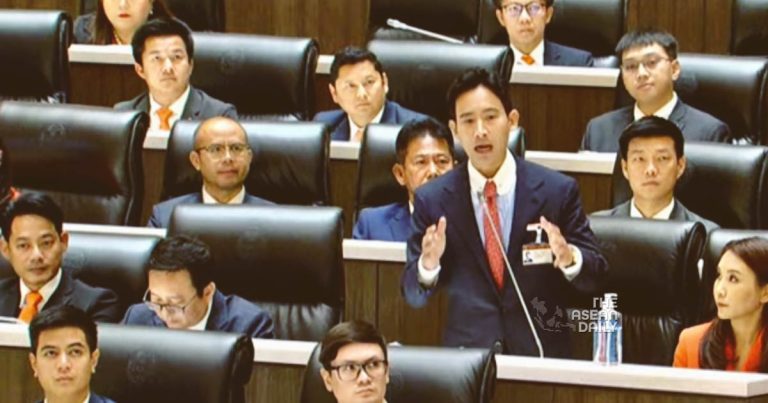7-4-2024 (BANGKOK) In a move that could have far-reaching implications for Thailand’s political landscape, the opposition Move Forward Party (MFP) has deferred electing new executives pending the Constitutional Court’s crucial ruling that will decide the party’s fate over its effort to amend the lese majeste law.
The MFP convened its plenary meeting in the Thai capital yesterday, where members were informed of the postponement. Emerging from the gathering, party spokesman Parit Wacharasindhu announced that no new executives would be appointed until the court case concludes, casting a cloud of uncertainty over the party’s future.
The Election Commission (EC) has urged the Constitutional Court to dissolve the MFP under Section 92 of the Political Parties Act, citing the party’s alleged hostility towards the democratic regime with the King as head of state. The court has accepted the case for hearing, setting the stage for a legal battle that could redefine Thailand’s political terrain.
According to the law, the EC is empowered to propose the dissolution of a party to the court if it has obtained sufficient evidence of an act deemed hostile to the democratic regime with the King as head of state. This action was prompted by a court ruling on January 31, in which the MFP was found to have pushed for changes to Section 112 of the Criminal Code, also known as the lese majeste law, indicating an intention to undermine the constitutional monarchy.
As the agency responsible for enforcing the Political Parties Act, the EC acted against the MFP, as the January 31 ruling presented grounds for dissolution, a move that could potentially silence one of the most vocal opposition voices in Thai politics.
Amidst the legal turmoil, Parit also outlined the party’s priorities in the coming months. Despite parliament being in recess, the MFP is making use of the break to prepare more than 50 bills ahead of the legislative body reconvening in July. Party MPs will work closely with their constituencies, reporting back on issues that require urgent attention while expanding their political network and support bases.
Furthermore, the MFP has set its sights on fielding candidates in elections for provincial administrative organisation members in at least 19 provinces, with candidates already named in three of these regions. This strategic move could potentially bolster the party’s grassroots support and strengthen its position within the political arena.
MFP leader Thawatchai Tulathon stated yesterday that the party was compiling rebuttals to the dissolution allegations, acknowledging the complexity of the case and the substantial amount of paperwork involved. The court has the power to extend the deadline for submitting essential defence documents, he added.
Thawatchai also revealed that the party needs more time to study the petition filed by the EC, as it may implicate the 44 MFP MPs who co-signed a document calling for changes to the lese majeste law, further escalating the legal battle.
Meanwhile, Pita Limjaroenrat, the MFP leader’s chief adviser, asserted that the party deserves ample time to mount a robust defence against what could amount to its political execution. He insisted that the party’s morale remains firmly intact, defying the potential setback.
“Have the powers-that-be ever asked themselves what is there to be gained from disbanding a political party?” Pita questioned. “It might weaken us in the short term, but it could also galvanise us tremendously and propel us forward in the next elections.”




